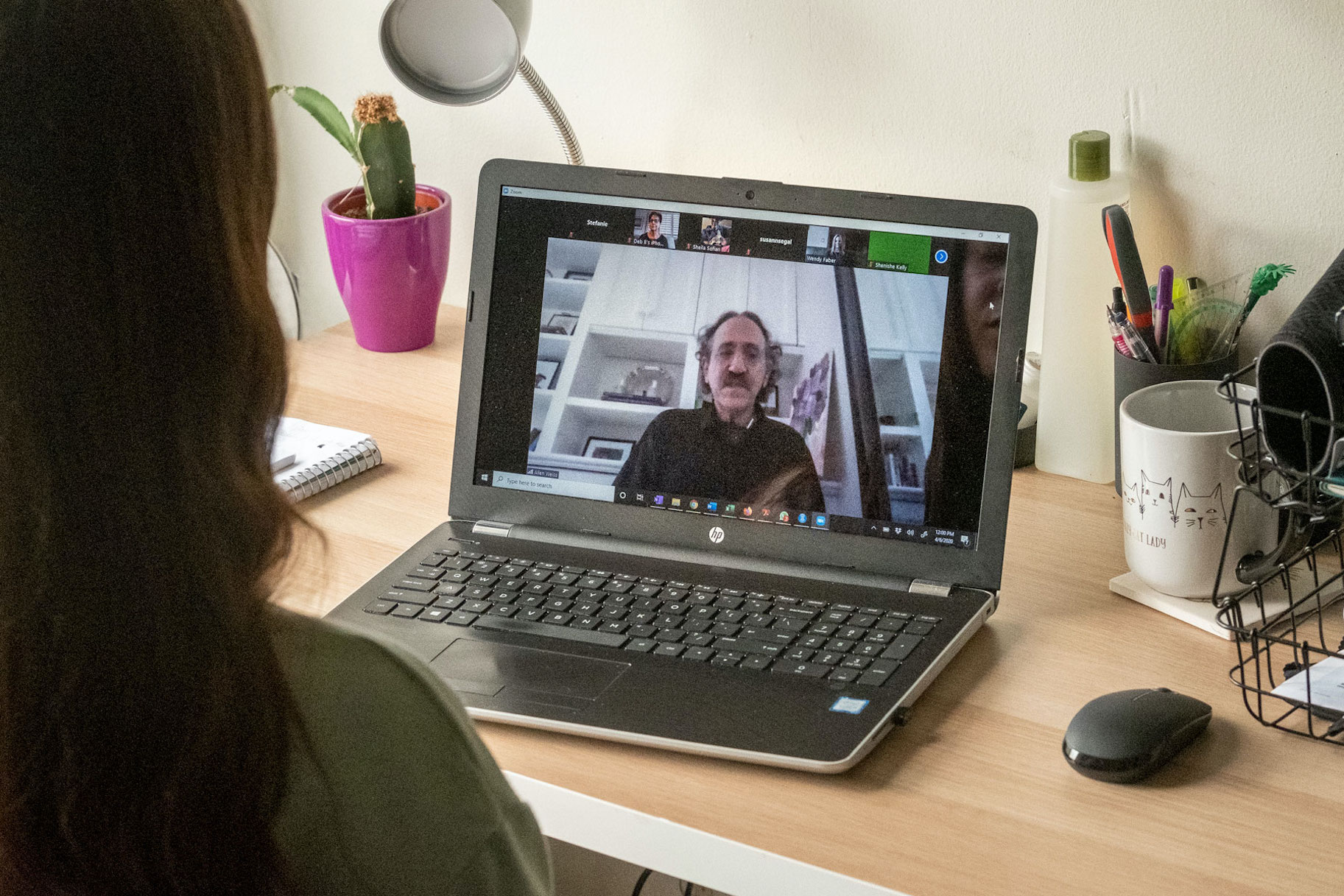When COVID-19 first began to spread, USC Professor Allen Weiss could tell that public stress was rising by how rapidly the store shelves were emptying.
As a faculty member at the USC Marshall School of Business, medical advances to fight the virus were beyond his purview, but as the director of Mindful USC, he knew he could help people address their anxieties surrounding the pandemic.
The challenge was to shift the initiative online as quickly as possible to meet growing requests from across the university. So, Weiss applied his vast experience in technology marketing, which includes service as a consultant for companies including Intel and IBM.
“I had to scramble because I not only had to get everything online, but also had to teach a lot of our instructors how to use Zoom,” he recalled.
Fortunately, Weiss and his colleagues had mindfulness as a way to ease their own worries and focus on aiding others.
Mindful Expansion
The meditative practices of mindfulness aim to enhance self-awareness to reduce stress and increase happiness, openness and kindness to others. Weiss suggested this quick exercise as an example: Close your eyes for a few seconds and focus on your breathing to let your thoughts go.
By doing so, you have taken a small step toward relaxing your mind.
Mindful USC seeks to expand that relaxation so that participants can heighten their abilities to respond to events instead of merely reacting to them. In addition to greater calm and well-being, mindfulness can also improve attentiveness and creativity. Weiss emphasized, however, that it is a skill that must be developed.
To help more people cultivate the ability, he founded Mindful USC in 2014 with the support of Varun Soni, dean of Religious and Spiritual Life.
“I built the website and other aspects and agreed to teach all classes during its first year,” Weiss said.
Due to overwhelming demand, the initial cohort of six classes rapidly grew to 10. Offered free of charge, the in-person sessions were held on campus at the multi-faith “Fishbowl Chapel” in the USC Campus Religious Center. Up to 50 students, staff and faculty would attend each session.
Offering the courses remotely has expanded Mindful USC to reach more Trojans, including alumni. As a result, registration has nearly doubled.
“People love us,” Weiss said. “They really appreciate what we’re doing.”
While enrollment has increased, the numbers for each course are capped so participants can feel connected to each other instead of feeling lost in a crowd. This connection is enhanced by using Zoom’s chat function, where they are encouraged to share their feelings and observations.
Weiss enjoys taking advantage of the online format.
“I’m a big believer in what Marshall McLuhan said, that the medium is the message. So instead of handouts, I try to make PowerPoints that are fun and interesting,” Weiss noted, adding that music is also used to set the atmosphere.

(Photo: USC Photo/Gus Ruelas)
Diversity and Inclusion
In addition to courses on how to incorporate mindfulness into all aspects of life, the initiative features specialized labs that apply mindfulness techniques to creativity, writing and photography. One course uses mindfulness to address the ups and downs of parenting, while another focuses on eating and our relationship with food.
“It’s like a gateway,” Weiss said. “I thought if people came in because they were interested in writing, for instance, that would be a good entryway into mindfulness.”
Although any member of the USC community is welcome to sign up for Mindful USC courses, sections also exist for people wanting to practice alongside virtual classmates of shared backgrounds and experiences.
“We’ve had a BIOPOC [Black, Indigenous and people of color] group for a number of years.” Weiss said. Meanwhile, other sections are geared toward military veterans and the LGBTQ communities.
In addition, since Weiss believes it’s never too early — or late — to start practicing mindfulness, his efforts include partnering with the undergraduate admissions office to reach incoming freshmen.
“They were 17- and 18-year-olds who would be starting classes in August, but I was already teaching them mindfulness in July,” he said.
Since college can be stressful even in non-pandemic times, Weiss believes that instilling such skills as soon as possible helps keep students from feeling overwhelmed.
“I’m trying to keep them out of therapy as much as possible,” he joked.
Future Calm
Even when facing potential danger, according to Weiss, true mindfulness helps people act more effectively because they won’t feel overwhelmed by the situation.
Weiss was first drawn to mindful techniques after facing a dangerous situation that would fill anyone with anxiety — being diagnosed with a brain tumor. Surgeons removed the tumor, but the experience left him with debilitating fears. Nothing seemed to help until he noticed a flyer for a mindfulness retreat, and his life changed.
Since becoming adept in mindfulness, Weiss has shared its techniques with thousands of people. Whether online or in person, he looks forward to helping countless more become mindfully attuned. Even after people can gather together again safely, Weiss expects the virtual mindfulness classes to keep growing.
Given people’s different schedules, “this is a way to provide help all the time,” he said.
For more information, visit Mindful USC or download the Mindful USC mobile app.

